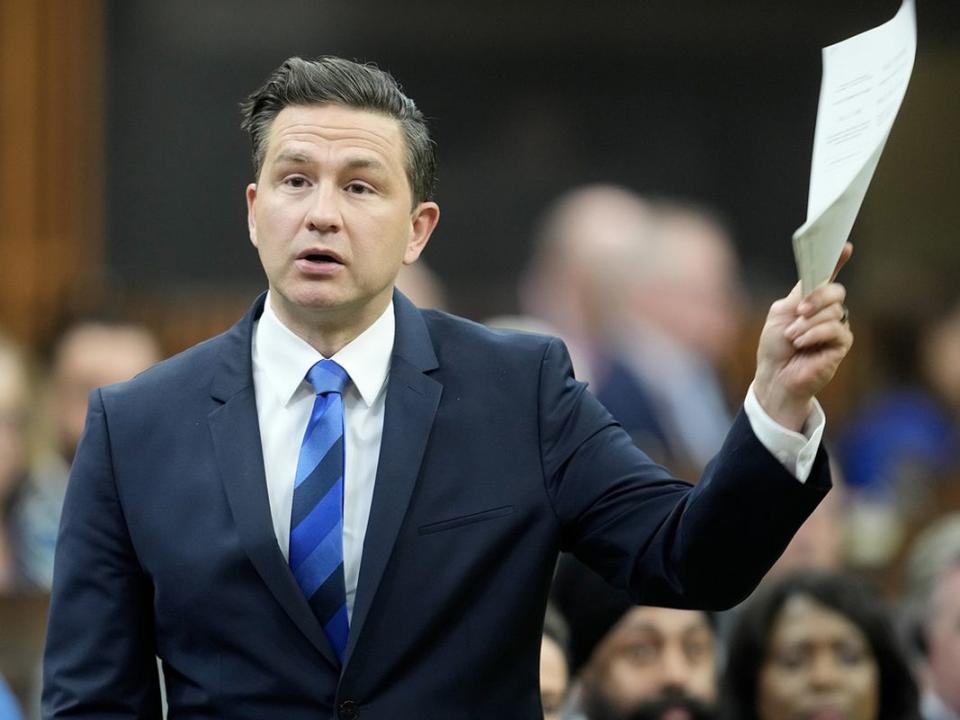William Watson: How to get ‘working-class’ voters to support Reagan-Thatcherism

At a recent Liberty and Leadership seminar sponsored by the Montreal Economic Institute, I heard former Harper policy adviser and current conservative ideas merchant Sean Speer grapple with the political puzzle of the age: how to enable conservative political parties that increasingly draw their support from “working-class” voters to implement the Reagan-Thatcher-style tax cuts and deregulation that are so obviously needed in an era that has turned into a rerun of the stagflationary spend-and-tax 1970s. (Personally, I would ditch the term “working-class”: who doesn’t work these days?)
In a way, this is the reverse of the “What’s the matter with Kansas?” problem that has bedevilled the American left since even before Thomas Frank made it the title of his 2007 book. Kansas is a relatively poor state, Frank argued. Its economic interest should be to vote Democratic since the Democrats offer all sorts of programs and tax redistribution to benefit lower-income voters. And yet Kansans keep voting Republican.
“What could be the matter with Ontario’s working class?” is the puzzle currently confronting Canadian conservative and Conservative strategists. How do you get Ontario workers to vote against their supposed economic interest? In theory, many should prefer Liberal redistributionist policies that are explicitly tilted toward “the middle class and those working hard to join it.” How does a national Conservative and maybe even conservative party persuade such voters they need to elect a government that will go back to balanced budgets, less spending and lower taxes?
The Kansas paradox has two obvious explanations. One, the premise is wrong: Democratic redistribution isn’t actually so good for Kansans and they understand that. And, two, (though it pains this economist to say so) there’s more to life than economics: so-called cultural policies, even “culture wars,” matter a lot. People from media-dominating elite culture just don’t understand how ordinary folk — lumpen-folk, you might say, borrowing from the Marxian “lumpenproletariat” — hold fast to antiquated notions of patriotism, gender, tradition, religion, community, personal safety and so on. But they do (God bless ’em!).
That suggests two main strategies for getting so-called working-class people to support the sensible smaller-government, balanced-budget policies we so clearly need.
One is to continue to fight that battle head-on. Working-class Canadians, like just about all Canadians (short-sellers and McKinsey partners maybe excepted), do better in a good economy. And a good economy is more likely if people can get on with their ambitions with a minimum of taxation, interference and delay from gatekeepers. That’s usually derided as “trickle-down” economics. But if conservatives insist on lower taxes for all, not just for people at the top, I suspect even “working-class” people are capable of understanding how that will produce a stronger economy. It’s not trickle-down economics, it’s works-better, common-sense, from-the-bottom-up-and-all-sides-out economics. For evidence, there’s the fact that the first thing the Justin Trudeau Liberals did on coming into office was to raise the top marginal rate of income tax. It would be hard to argue the economic doldrums we’ve been adrift in since have nothing to do with that.
Incidentally, the upcoming vote on the Liberal plan to raise the capital gains tax, which clever Liberal operatives have hived out of the omnibus budget bill so as to dare the Conservatives to vote against it and thus reveal themselves as friends of “the rich,” gives Pierre Poilievre and company a chance to pitch their lower-taxes-for-all line. They could offer amendments that actually do lower taxes for all, including people at the top. And when the Liberals and NDP defeat these amendments, they could vote against the capital gains hike but make clear that under a Conservative government taxes will be 1. lowered and 2. simplified.
On some parts of the traditional economic-conservative program ordinary folk are already fully on board. Former finance and prime minister Paul Martin used to say that on controlling deficits and debts the Canadian public was way out front of Ottawa. In economics, concern for budget balance is regarded as unsophisticated bunkum. But it’s bunkum common people clearly subscribe to: even if you can, you shouldn’t live continuously beyond your means. Most people already get that.
The second main strategy for winning over people who may not be crazy for Reagan-Thatcher economics is to do a Kansas: offer them attractive platform planks on cultural and other issues that, perfectly reasonably, they feel strongly about. The “Reagan Democrats” who gave Ronald Reagan two smashing election victories — by 8.8 million votes in 1980 and 16.9 million in 1984 — were not all low-tax, low-spending, green-eyeshade fiscal conservatives. They liked Reagan for his strong stands on communism, defence, social issues and elite idiocy — as well as for the strong economy his economic policies helped produce. So they voted for Reagan even if it cost them the short-term benefits of Democratic redistribution.
I suspect Ontario and other places in Canada are full of potential Poilievre Liberals, maybe even Poilievre NDPers, who are: tired of the Liberals, thoroughly annoyed by all the wokeness, and who don’t like gatekeepers any more than Poilievre does and therefore will be willing to vote Conservative even if it means spending restraint in the interest of balanced budgets, lower interest rates and taxes, and faster economic growth.
Financial Post
Bookmark our website and support our journalism: Don’t miss the business news you need to know — add financialpost.com to your bookmarks and sign up for our newsletters here.

 Yahoo Finance
Yahoo Finance 